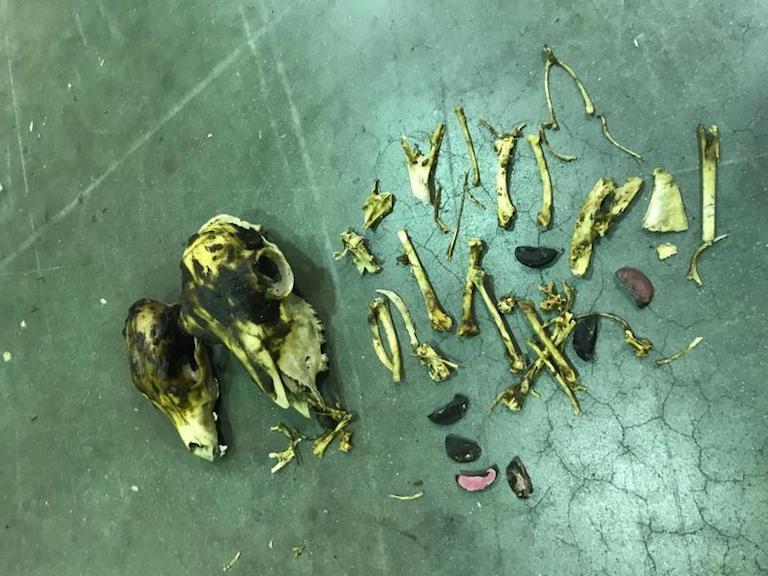CBP intercepts animal skulls, bones, skins
Jul 02, 2020U.S. Customs and Border Protection agriculture specialists working at the George Bush Intercontinental Airport cargo facility intercepted a shipment of restricted and prohibited items including a canine skull, a sheep skull, various other bones, unknown mammal skins, cowrie shells, and tubs of unidentified black paste presumed to be homemade soap with possible animal origin ingredients.

The shipment that originated in Nigeria and destined for Houston was manifested as clothing items.
“This interception is indicative of our commitment to protecting the nation’s agriculture industry from the introduction of harmful exotic pests and foreign animal and plant diseases,” said CBP Port Director Shawn Polley.
These cowrie shells and unknown animal skins were intercepted in a shipment from Nigeria.
Aside from the animal products, which are regulated by U.S. Fish and Wildlife Service, this shipment also contained 72
The shipment that originated in Nigeria and destined for Houston was manifested as clothing items.
“This interception is indicative of our commitment to protecting the nation’s agriculture industry from the introduction of harmful exotic pests and foreign animal and plant diseases,” said CBP Port Director Shawn Polley.
These cowrie shells and unknown animal skins were intercepted in a shipment from Nigeria.
Aside from the animal products, which are regulated by U.S. Fish and Wildlife Service, this shipment also contained 72 pounds of fresh wood chips, 33 pounds of melon seeds, four different seeds for planting and a melon all of which are regulated by the U.S. Department of Agriculture.
U.S. Fish and Wildlife Service seized the skulls, bones, skins and shells and CBP destroyed the other prohibited items.
On a typical day in fiscal year 2019, CBP agriculture specialists around the nation intercepted 314 pests, and prevented 4,695 restricted or prohibited plant, meat, animal byproduct, and soil materials from entering the country.
The U.S. prohibits or restricts certain agriculture products from entry because those products may carry plant pests and foreign animal disease. To avoid the seizure of agriculture items, follow this guidance on bringing agriculture items to the U.S.
Similar Stories
S&P Global: Triborough Bridge and Tunnel Authority, NY Series 2025A revenue bonds assigned ‘A+’ rating; outlook stable
S&P Global Ratings assigned its 'A+' long-term rating to the Triborough Bridge and Tunnel Authority (TBTA), N.Y.'s proposed $1.3 billion (Metropolitan Transportation Authority [MTA] Bridges and Tunnels) real estate transfer…
View Article
American Airlines becomes only carrier to fly nonstop between Washington, D.C., and San Antonio
View ArticleOpen Skies agreement with the Dominican Republic enters into force
The U.S.-Dominican Republic Air Transport Agreement entered into force on December 19. This bilateral agreement establishes a modern civil aviation relationship with the Dominican Republic consistent with U.S. Open Skies…
View Article
WorldACD Weekly Air Cargo Trends (week 50) - 2024
View Article
Aeromexico now connects Miami with Cancun
View ArticleBiden-Harris Administration Announces CHIPS Incentives Award with SK hynix
CHIPS investment establishes a research hub in Indiana and brings next generation HBM and advanced packaging R&D to the U.S.
View ArticleGet the most up-to-date trending news!
SubscribeIndustry updates and weekly newsletter direct to your inbox!





